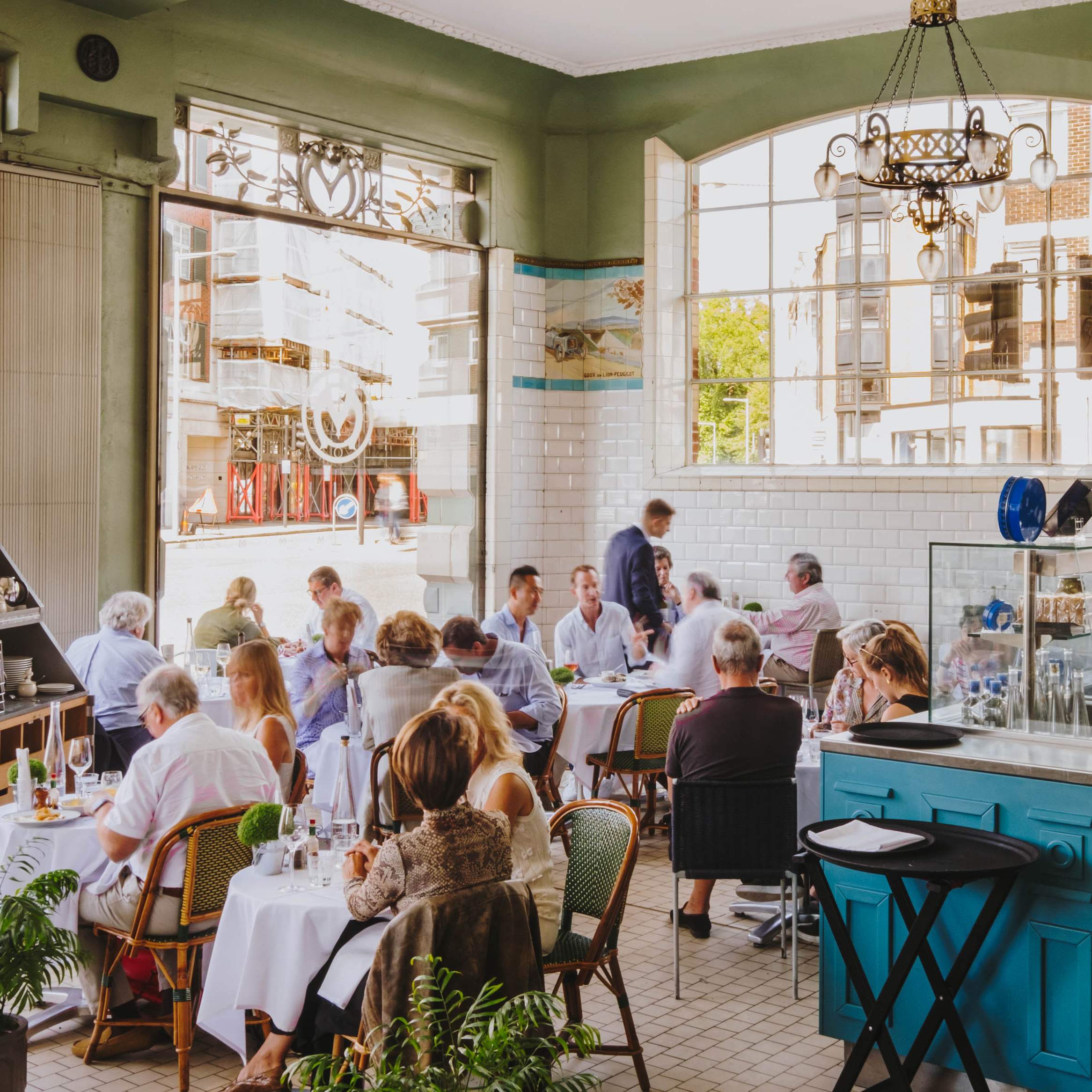The contents of this article does not, and is not intended to, constitute legal or financial advice; instead, all content is intended for general informational purposes only. Information in this article is presented “as-is” and may not be the most up-to-date information. All liability with respect to actions taken or not taken based on the contents of this article is hereby expressly disclaimed.
Opening a restaurant means adhering to a variety of legal and regulatory requirements that aspiring restaurateurs must inform themselves of. Navigating the rules around health and safety, food hygiene, business permits, premises licensing and more can get complicated fast.
Here, we break down some of the most important legal checks and processes involved in launching a successful restaurant business. From property contracts and food safety training to alcohol licences and disability access, these are among the hoops you may need to jump through on the road to opening up a thriving, legitimate restaurant operation.
Business registration and structure
Deciding on the right business structure is crucial when you’re working to get a restaurant up and running. You’ve essentially got three options: going it alone as a sole trader, entering into a partnership with a business partner or forming a limited company.
Sole traders have complete control and get to make all of the decisions but also take on unlimited liability. That means you’re responsible for any debts.
Partnerships allow the responsibilities, control and risk to be shared, but disagreements down the road could become messy.
A Ltd. company means the business is legally separate from the owners, creating some liability protection, but there are mandatory record-keeping and corporate tax filings that you’ll need to stay on top of.
Once you land on the best structure for your restaurant, you’ve got to make it official with the right registrations. Sole traders need to register with HMRC for taxes, while partnerships often draw up an agreement covering ownership percentages and roles.
Limited companies register with Companies House, requiring articles of association and director appointments while also registering for corporation tax separately. And any structure that crosses the VAT registration threshold must also register for Value Added Tax.
There’s no definitive “right choice” when it comes to choosing a business structure. It largely comes down to the size of your plans, appetite for financial risk and how involved you want to be on the administrative side of things. Being clear on these elements will help you choose a legal structure that best fits your restaurant as you work to get it up and running.

Licensing requirements
Any restaurant looking to get off the ground needs to make sure its licences and registrations are locked down. If you’ll be serving alcohol, a premises licence is essential and applied for through the local council.
You’ll need to map out operational details like opening hours, layout, capacity, music options and the full food and drinks menu, including an alcohol management plan to keep tabs on consumption. Upon submitting an application for a liquor licence, there is a mandatory consultation period of at least 28 days. This allows for public objections or concerns to be raised and considered.
Registration on the food safety side is also mandatory through your local authority at least 28 days pre-opening. They’ll ask for specifics on how you’ll store, prep and handle the food to confirm you’re following the rules.
About a month after opening your doors, an environmental health officer will come by for an inspection to see your food safety practices in action first-hand. These visits happen periodically, so it’s key to keep temperature charts, cleaning duty rosters and pest control invoices organised onsite for when the officer pops by.
Staying on top of all the licences and health and safety certificates is crucial to keep your restaurant running smoothly and customers happy.
Health and safety compliance
Operating a restaurant kitchen means stringent standards for health and safety compliance – how good the food tastes won’t matter if diners get sick, not to mention that your reputation will be on the line. Therefore, making sure your health and safety is on point should be one of the biggest priorities.
Keeping the kitchen clean
You’ll need food prep and handling protocols aligned with laws like the Food Safety Act and Hygiene Regulations. Developing a made-to-measure HACCP plan prevents contamination and unsafe practices for your specific menu offerings and kitchen layout. Documenting and routinely reviewing the protocols you establish is hugely important.
Employee safety
The Health and Safety at Work Act also applies to protect your staff. Look at roles like servers navigating cramped spaces and kitchen staff working dangerous equipment – what risks exist? From there, implement adequate training and safety policies targeting daily operations to minimise workplace accidents onsite. This ranges from fire drills to proper lifting techniques when restocking heavy boxes. Staying on top of risks through evolving menus and staffing changes is key to quality working conditions.
Employment law
A restaurant lives and dies on the strength of its team. Hiring is about more than just filling roles – it’s about gathering people who genuinely connect with the soul of your establishment. In turn, you need to set them up for success while adhering to UK employment laws like fair wages, workplace safety, anti-discrimination policies, legal working status and providing staff benefits like pensions.
Onboarding the right way
Clear, detailed employment contracts form the bedrock of your restaurant. Explicitly outline responsibilities, pay rates, hours and policies, as it shows respect and prevents future conflicts. Right from day one, a team that feels seen and valued will channel that trust back into fueling your joint vision.
Also key: hiring in the UK should focus on skills and passion, not demographics. Diverse perspectives lead to richer ideas and experiences all around.
Training as an investment
Ongoing education gives your team the confidence to handle the pressures inherent in this industry. Food safety certifications aren’t just legally required but empower people to address risks. Regular training and refreshers on evolving standards prove you have their back. When people feel supported in growth, they’re more likely to stand by you in solidarity.
Robust training and a strong backing aren’t just hoops to jump through. It’s how you collectively build towards stability, where both the restaurant and its crew can thrive.
Insurance requirements
Running a restaurant means preparing for worst-case scenarios just like you’d prep ingredients for a signature dish. The right insurance creates that layer of protection – it’s not flashy, but it allows you to sleep soundly and focus on the food.
Public liability coverage is essential for guarding against customer claims from slip-ups like injuries or accidental property damage. For the team, employer’s liability insurance is legally required in the UK to cover work accidents causing illness or injury.
And it’s smart to insure the bricks and mortar too, as building and contents insurance keeps things cooking if hardships like fires or flooding hit your kitchen or dining room. Though not as glamorous as crafting menus, the right insurance gives peace of mind that the show can go on if crises strike, keeping both diners and your squad covered. The less exciting back-end business stuff ultimately allows for more energy, enjoying the thrill of the front-of-house.
Environmental regulations
A restaurant’s imprint goes way beyond the dinner table. There are environmental laws to consider when setting up your restaurant, such as:
Conscientious waste practices
The UK mandates that restaurants properly sort leftovers, packaging and disposables for recycling or waste removal. Yes, it takes extra prep, but it shows care for your community and food chain.
Being considerate neighbours
Abiding by local noise rules maintains harmony with neighbourhoods, especially in crowded areas. Maybe it’s soundproofing a bustling dining room or agreeing to softer acoustic sets after 10 pm. Small gestures like this allow dining and existing residents to coexist congenially.
Accessibility requirements
For restaurants in the UK, accessibility is a legal obligation to make dining welcoming for all. The Equality Act says restaurants need to make “reasonable” adjustments to accommodate disabled guests.
Naturally a tiny cafe can’t provide the same level of adaptations as a larger spot. But every restaurant must earnestly consider how to include those with vision, hearing, mobility limitations or hidden conditions. Ramps, easy-read signage, Braille menus, and disability awareness training for staff are just a few examples, though “reasonable” will vary case-by-case.
Most importantly, these adjustments should stem from a place of care rather than just rule-following. Making people feel genuinely welcomed and included fosters community loyalty over the long term.
When a business shifts accessibility from an obligatory chore to an integral part of its ethos, it has the power to transform dining for someone from satisfactory to sincerely welcoming. Efforts to include and consider diverse needs resonate with every customer. At the end of the day, those thoughtful touches build spaces where more people can connect through the joy of sharing a meal.

Marketing and advertising compliance
Amidst the fierce competition in the restaurant scene, marketing campaigns walk a fine line between wooing customers and avoiding misleading promotional tactics. Legal guidelines protect consumers while pushing businesses to build community through transparency – not superficial hype.
The Advertising Standards Authority (ASA) mandates honesty in all restaurant advertisements, whether billboards or Instagram posts. That means no visibly enhanced food photos portraying dishes markedly different from reality. Using unrealistic imagery risks disappointment and the erosion of diner trust. Transparent representation demonstrates respect for guests.
Additionally, promotions like “buy one get one free” require clear communication of any constraints or exclusions around timing or menu eligibility. Hidden terms buried in fine print alienate diners seeking straightforward information when making dining decisions. Being fully upfront about specials shows a business respects its guests’ time and intelligence.
Then comes the actual food descriptions. Listing dishes as gluten-free that contain wheat or labelling items vegan when they feature dairy misleads anyone managing health conditions or ethical dietary needs. Beyond illegal health risks, false descriptions also signal sloppy practices and are misleading.
But legal compliance is just the foundation. Plenty of restaurants strategically highlight things like locally sourced produce or sustainable vendor partnerships. This builds rapport with diners wanting to support businesses aligned with their personal values of community engagement and eco-conscious commerce.
At its core, false advertising misplaces trust – it treats customers like faceless transactions rather than valued community members. In vibrant, competitive spaces like the UK restaurant industry, truly thoughtful marketing provides that point of differentiation from simply appetising to genuinely welcoming.
Summary: Legal Eagles
There is plenty that goes into making sure you have every aspect of the legal requirements required to open a restaurant in the UK. And it’s always important to seek legal advice before making any definitive decisions. In the meantime, these tips can act as guidelines to give you a better understanding of what’s required when you’re turning your restaurant dream into a reality.




